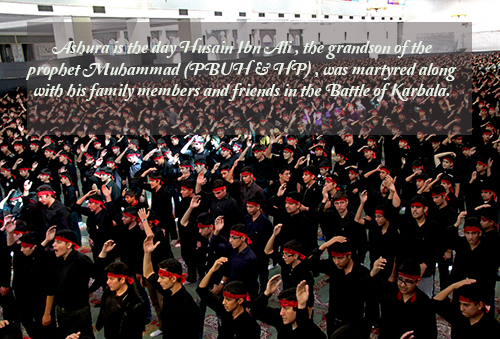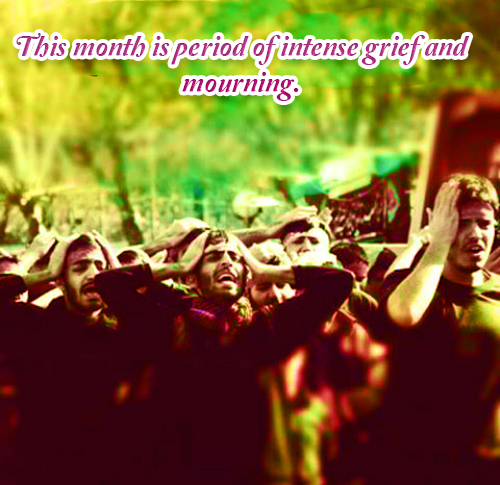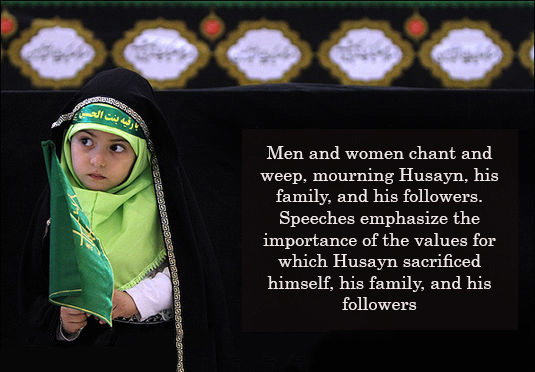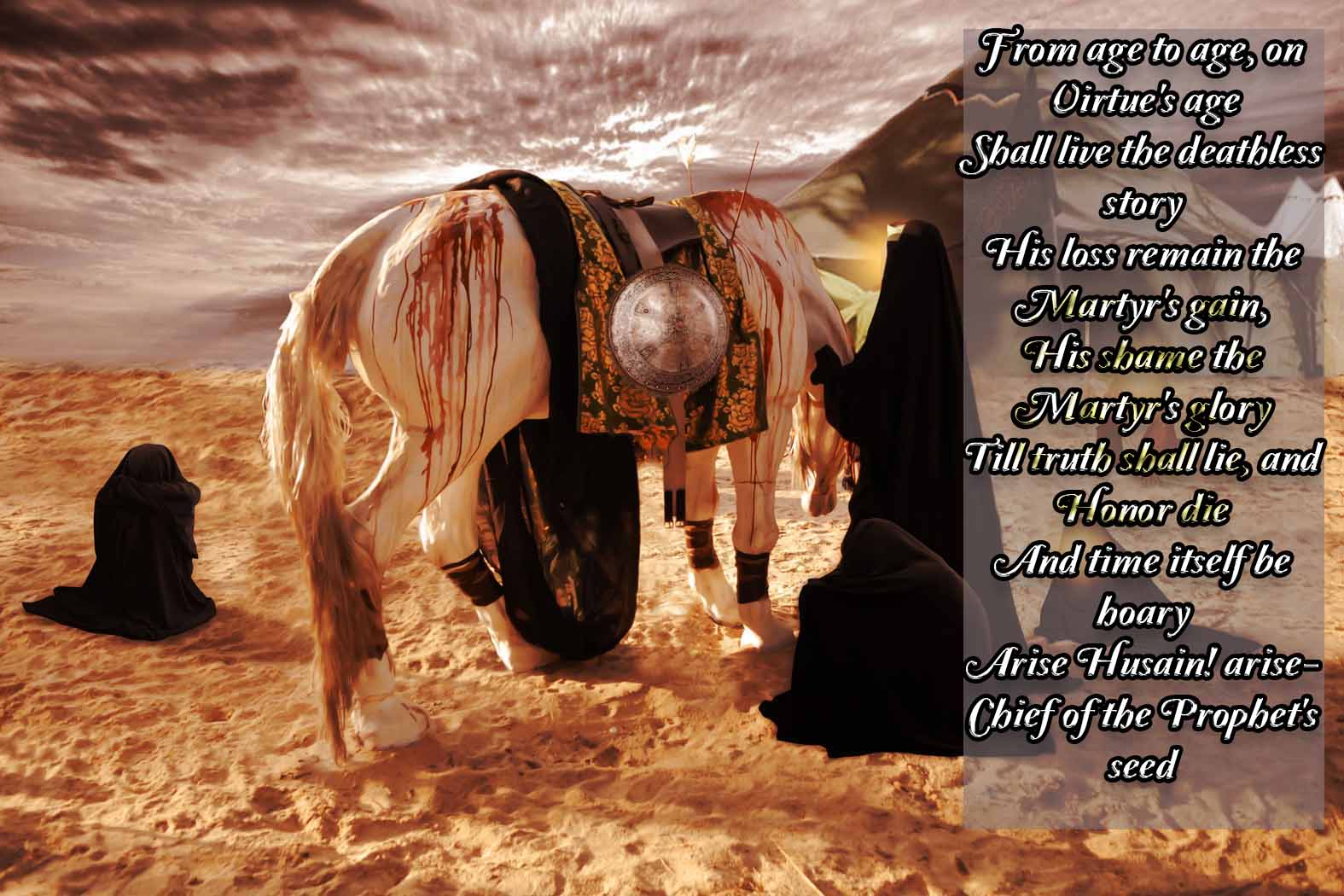
#نامه_ای_به_دخترم
پنجشنبه 96/05/05
#نامه_ای_به_دخترم
بسم الله الرحمن الرحیم
الحمد لله ربّ العالمین
و الحمدلله الذی جعلنا من المتمسکین بولایة مولانا علی بن ابیطالب(علیه السلام) و مولاتنا فاطمة الزهرا(سلام الله علیها) و الائمة المعصومین من ولدهما سیّما الحجّة (ارواحنا لتراب مقدمه الفداء)
سلام به دختران گلم لیلا و فاطمه
میوه های دلم، نور چشمانم ،موقعیتهایی که پیش میاد و اتفاقاتی که میافته با هم حرف می زنیم، مسائل را موشکافی می کنیم، سبک سنگین می کنیم ، رأی میدیم، نتیجه می گیریم، و راهمون رو انتخاب میکنیم.
اما زمانی میرسه که ماباید خودمون هم برنامه ریزی کنیم، هدف داشته باشیم، و اجازه بدیم دیگران مارو نقد کنند، و ما خودمون رو اثبات کنیم یا اصلاح کنیم . برای اثبات یا اصلاح کارمون باید ببینیم تکیه گاه نقد کننده برحق است یا تکیه گاه عمل من . و میزان تشخیص همانا عقل باطنی(عقل و فطرت پاک درونی خود) و عقل ظاهری (امام و مقتدای بیرونی که همانا قرآن کریم و اهل بیت عصمت و طهارت و در غیبت امام معصوم ولی فقیه جامع الشرایط) است.
شاید فکرکنی دیگر نیازی به نامه نوشتن نیست ؛
آری نامه آخرین راه است.
نامه شایدبرای وقتی است که آدمها نمی توانند باهم حرف بزنند.
نامه شاید برای وقتی است که من نباشم.
نامه شاید برای اتمام حجت باشد.
نامه شاید برای دل نگرانی باشد.
نامه شاید برای قلبی مطمئن و دلی آرام باشد.
نامه شاید برای یادداشت مهمترین چیزها و حفظ اصول و ارکان رکین زندگی باشد.
وقتی، فرصتی پیش آ مد که نامه بنویسم ، یاد نامه نانوشته بزرگ پیشوای اسلام و مسلمین، حضرت محمد مصطفی (صلی الله علیه وآله ) افتادم.
بعد یادم آمد که چرا شهداء در لحظه لحظه زمان و در نقطه نقطه مکان و با ذرّه ذرّه وجود می گفتند: پشتیبان ولایت فقیه باشید و هیچ موقع دست از ولایت برندارید
یاد جری شدن دشمن بعد از پیامبر رحمت افتادم که جسارت را تا در خانه بی بی دو عالم کشاند و بانوی معصوم ، برای خاطر حجاب کردن راضی به بازکردن در نشدند و …………..
باز یادم آمد که شهدا در نامه شان گفتند که خواهرم من سرخی خونم را به سیاهی چادرت هدیه دادم. پس ببین چقدر ارزش دارد چادرت و حجابت.
همچون مادر معنویمان فاطمه زهرا(سلام لله علیها) ، تا آخرین نفس گوش به فرمان وپیرو واقعی امامت و ولایت باش.
دشمن، فرزندش (محسن) را از او گرفت اما حجابش را هرگز
روح بلند دوران و پیشوای انقلاب اسلامی ایران، خمینی کبیر گفتند: با دلی آرام و قلبی مطمئن شماراترک می کنم.
نه اینکه پیامبر اکرم(صلی الله علیه و آله) قلبش مطمئن نبود؛ نه ؛ بلکه این نشانه ظهور است
نشانه برقراری عدالت و جامعه فاضله مهدوی است . یعنی پیشرو پیشوا و ولایت فقیه ، باید این نشانه اطمئنان را داشته باشد.
یعنی ای 313 یار ، مطمئن شوید ؛ مطمئن باشید ؛ آرامش واقعی داشته باشید که بعد از طوفان انقلاب و قیام مهدوی (عجل الله تعالی فرجه) ،
سرزمین عدل و کشور عشق و مدینه فاضله موعود نبی(صلی الله علیه وآله) به آرامش و استقرار واقعی خواهد رسید.
دوست دارم یارش باشید ،دختران من و زین و مایه ی افتخار اسلام و مسلمین باشید، نه شین و مایه ی سرافکندگی.
من نبودم سلام مرا به امام زمانم برسانید .
شاید بخاطر همین است که میگویند: دختر، جانشین مادراست.
دختر، امّ ابیها است.
دختر ، مدافع حرم و حریم است.
دختران عزیزم: می دانید که حرف مادر و دختر تمام نمی شود…
تا همیشه باعث مباهات منید.
تاج سرم، افتخارم،
خداوند همه ی بهترینها را که برای همه خوبان و اولیاءش کنار گذاشته به شما هم عطا کند .
اللهم صل علی فاطمة و ابیها و بعلها و بنیها و سرّ المستودع فیها بعدد ما احاط به علمک.
بهترین وبلاگ ها

Ashura
سه شنبه 96/05/03
As the enemies had the body of Imam Hussain (as) surrounded, each took their turn stabbing his pure defenseless body, laid out on the ground; thus, while viciousness, revengefulness, and feral behavior swept through the battle field, in the camps of Imam Hussain (as) the spirit of remembrance in God, the human quality of tenderness, and intense emotions prevailed.
All women and children—no one but women and children were left in the camps, with the exception of the only surviving male Ali Ibn Hussain (as) who was ill—were worried about Hussain Ibn Ali (as) and what would transpire next.
They came out of their tents, and proceeded to the area where they believed Hussain Ibn Ali’s (as) body was seized; it has been narrated that the women departed from the camp. You have probably seen or heard how Arab women weep and mourn: it is still common among Arab women to mourn painfully upon the death of their loved ones; they beat their own faces, and pull at their hair; they mourn in such an intense manner. Well, these women had lost a loved one, a man like Hussain Ibn Ali (as).
Hazrat Zeinab was heading the women towards the sight of his martyrdom. When she arrived, she spotted the body of her beloved brother on the blistering grounds of Karbala. Instead of revealing some sort of reaction, or grievance, she went to the corpse of her beloved Hussain (as), and called on her grandfather (pbuh). She said, “O’ the Messenger of God, peace be upon you! Take a look at your Hussain who is covered in blood, with his body hacked up.” O’ my dear grandfather! O’ Great Prophet, look towards the hot desert of Karbala. This is your Hussain who is now covered in blood and dust.
Then, as it has been narrated, Zeinab (as) reached her hands beneath the body of Hussain Ibn Ali (as) and called out, “O’ God! Please accept this sacrifice from the progeny of Muhammad (saw)!”
Ayatollah Khamenei, 9/27/1985

بهترین وبلاگ ها

ََAshura
سه شنبه 96/05/03
Of course this is easier said than done. What Imam Hussein (a.s.) did was an extraordinary feat. That is to say, the dimensions of his action are far more than what we estimate. We usually ignore aspects and details. Once I spoke about Imam Hussein’s (a.s.) patience. His patience was not limited to enduring thirst or seeing his companions being killed. These things are relatively easy to tolerate. The kind of patience that is difficult to practice is to listen to influential, aware and respectable people who keep creating doubts and telling you that what you are doing is dangerous and wrong. Who did those things? People like Abdullah Ja’far, Abdullah Zubair and Abdullah Abbas. These prominent figures of that time were constantly telling Imam Hussein (a.s.) not to do what he was doing. If it were somebody else, somebody who did not have that determination and stable character, he would have thought, “Well, I did my duty. These people are talking like this and the world is acting like that, so I should just say what I am supposed to say and do nothing else.” A person who decides to stand up against such statements, such temptations, such doubts and such efforts to bend sharia and is not dissuaded from continuing his path - such a person is the one who can give rise to such a great transformation. In this regard our magnanimous Imam (r.a.) was similar to the Lord of the Martyrs. I explained this in another meeting and I do not want to go into the details now. This was how Imam Hussein (a.s.) acted as a guardian.

بهترین وبلاگ ها

ashura
یکشنبه 96/05/01
What is Muharra؟
Muharram (Arabic: محرم) It is the first month of the Islamic calendar. Instead of joyous celebration, Muslims mark the beginning of the New Year by taking up the black attire of sorrow and participate in mourning gatherings in which the sacrifices of Husain and his companions are commemorated. It is one of the four months of the year in which fighting is prohibited. Since the Islamic calendar is lunar, Muharram moves from year to year when compared with the Gregorian calendar.
Muharram is so called because it was unlawful to fight during this month; the word is derived from the word ‘haram’ meaning forbidden. It is held to be the most sacred of all the months, excluding Ramadan.It is the same month when Husayn, the grandson of the Prophet Muhammad, was brutally massacred in Karbala alongside his family and friends in the year 680 CE/61 AH.
محرم اولین ماه از تقویم اسلامی است. مسلمانان به جای مراسم شادی، سال جدید را با پوشیدن لباس سیاه که حاکی از غم و اندوه است آغاز می کنند و در مراسم عزاداری که در آن فداکاری امام حسین و یارانش یادآوری می شود، شرکت می کنند..این ماه یکی از چهار ماه حرام است که در آن جنگ حرام است.از آنجاییکه تقویم اسلامی قمری است، محرم در مقایسه با تقویم میلادی سال به سال در حرکت است.
محرم ماه شناخته شده ای است چون در این ماه جنگ و خونریزی حرام است. واژه محرم از کلمه “حرام” گرفته شده است که به معنای ممنوع می باشد .بعد از ماه رمضان ، محرم از مقدس ترین ماه هاست .محرم ماهی است که امام حسین نوه پیامبر اسلام حضرت محمد به همراه خانواده و دوستانش در سال شصت و یک هجری در کربلا ، بیرحمانه به شهادت رسیدند .
Their martyrdom is a sad day for all Muslims, especially the Shi’a, who hold mourning ceremonies to recall the righteous virtues for which the valiant martyrs stood and the grave calamities that they thus had to bear. The commemoration of this brutal massacre (Battle of Karbala) begins on the first day of Muharram and reaches its climax on the 10th of Muharram, the day of the battle, known as Ashurah and continues for 40 days or 69 days.
شهادت آنها روز غم انگیزی برای مسلمانان به ویژه شیعیان است که مراسم عزاداری یادآوری فداکاری و تقوای مردان شجاعی است که مقاومت کردند و مصائب بزرگی را تحمل کردند. بزرگداشت واقعه کربلا، از اول محرم شروع می شود و در روزدهم به اوج خود می رسد که “عاشورا” –روزی که جنگ رخ می دهد- نام دارد به اوج خود می رسد و سپس به مدت چهل یا شصت ونه روز ادامه پیدا می کند.

بهترین وبلاگ ها

Ashura
شنبه 96/04/31
The concept of guardianship was embodied by Imam Hussein (a.s.) with all its dimensions and with all the necessary and possib This is not to say that others did not do such a thing or did not want to do such a thing, rather it means that this movement was fully realized in the behavior of the Lord of the Martyrs (a.s.) during his ten-year imamate. One can clearly notice in his lifestyle all the methods that could have been used by a descendant of the Holy Prophet (s.w.a.) to preserve the great legacy of Islam which has been passed down by the Holy Prophet (s.w.a.) and his father as well as their genuine followers. We can clearly see everything in the lifestyle of the Lord of the Martyrs (a.s.) - everything ranging from clarification, to forewarning, to promotion of Islam, to provoking the conscience of prominent figures of his time during a sermon in Mina. All these things are tangible in the lifestyle of the Lord of the Martyrs (a.s.). Later on he stood up against a great deviation and laid down his life. Imam Hussein (a.s.) was aware of the consequences of his movement. He was an le means.infallible Imam. Infallible Imams’ extensive knowledge and insight are beyond our heads. Imam Hussein (a.s.) revolted to set a role model and he refused to surrender. He asked people to help him and when a group of people from Kufa expressed their willingness to accompany him on this path, Imam Hussein (a.s.) accepted their offer and moved towards Kufa and he did not give up in the middle of the way. Imam Hussein (a.s.) stood up against the deviated current of his time, which was extremely dangerous. And this became a lesson and Imam Hussein (a.s.) himself makes the same point. That is to say, he backed up his action with the order of Islam. He said that his duty was what he was doing. He said that he had to express his opposition, no matter what the consequences were. He said, “It is good if my destiny is a victory and if my destiny is martyrdom, so much the better.” This was how Imam Hussein (a.s.) acted.
This was a perfect instance of self-sacrifice and it safeguarded Islam. This move preserved Islam. This move institutionalized values in society. If Imam Hussein (a.s.) had not accepted this danger, if he had not made a move, if he had not taken action, if his blood had not been shed, if those great tragedies had not happened to the shrine of the Holy Prophet (s.w.a.), to Imam Ali’s (a.s.) daughter and to the Holy Prophet’s (s.w.a.) descendents, this event would not have gone down in history. The event that could have prevented that great deviation had to shock people and history as much as the deviation did. This shows Imam Hussein’s (a.s.) self-sacrifice.
Of course this is easier said than done. What Imam Hussein (a.s.) did was an extraordinary feat. That is to say, the dimensions of his action are far more than what we estimate. We usually ignore aspects and details. Once I spoke about Imam Hussein’s (a.s.) patience. His patience was not limited to enduring thirst or seeing his companions being killed. These things are relatively easy to tolerate. The kind of patience that is difficult to practice is to listen to influential, aware and respectable people who keep creating doubts and telling you that what you are doing is dangerous and wrong. Who did those things? People like Abdullah Ja’far, Abdullah Zubair and Abdullah Abbas. These prominent figures of that time were constantly telling Imam Hussein (a.s.) not to do what he was doing. If it were somebody else, somebody who did not have that determination and stable character, he would have thought, “Well, I did my duty. These people are talking like this and the world is acting like that, so I should just say what I am supposed to say and do nothing else.” A person who decides to stand up against such statements, such temptations, such doubts and such efforts to bend sharia and is not dissuaded from continuing his path - such a person is the one who can give rise to such a great transformation. In this regard our magnanimous Imam (r.a.) was similar to the Lord of the Martyrs. I explained this in another meeting and I do not want to go into the details now. This was how Imam Hussein (a.s.) acted as a guardian.
Statements made during an address to members of IRGC; July 4, 2011.


1396/05/05 @ 09:29:49 ق.ظ
سرباز سایبری [عضو]
احسنت
موفق باشید